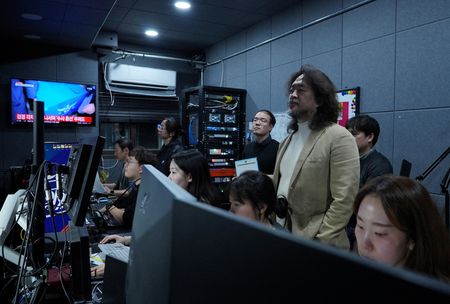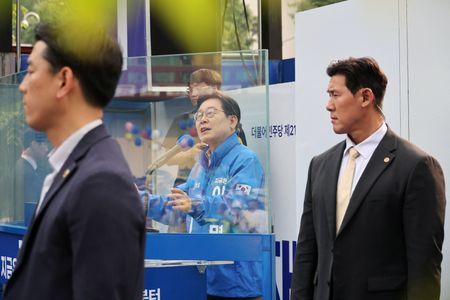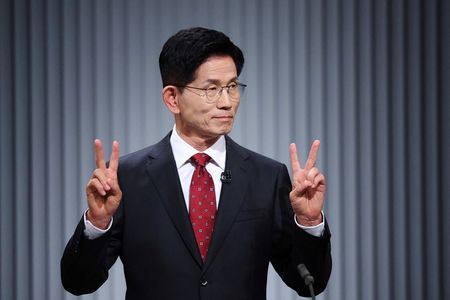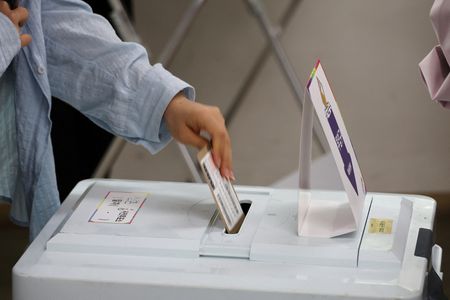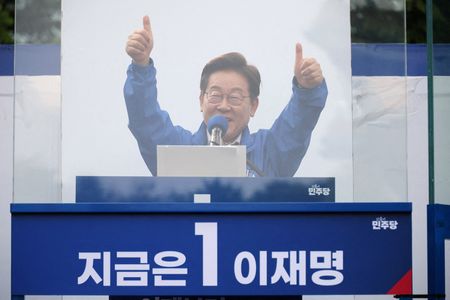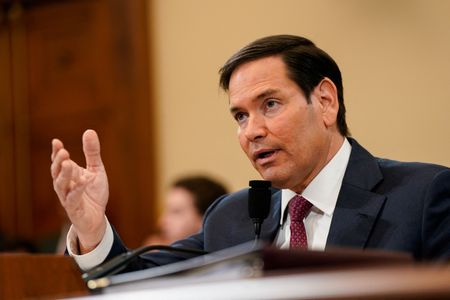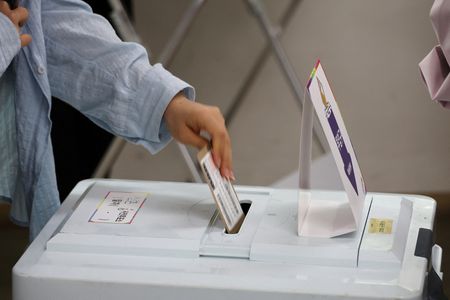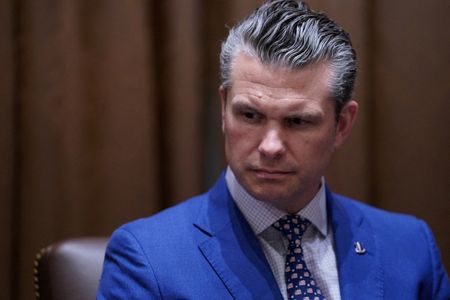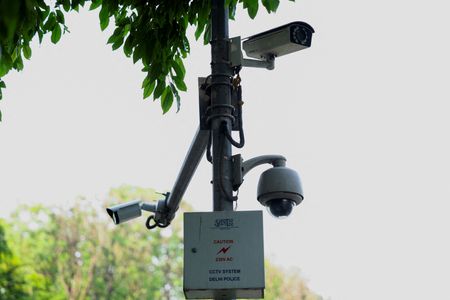By Hyunsu Yim and Joseph Campbell
SEOUL (Reuters) – Veteran South Korean broadcaster Kim Ou-joon said he left home and went into hiding minutes after President Yoon Suk Yeol declared martial law last week in a televised announcement.
Fearing for his life, Kim said he kept a low profile for 36 hours in a place “far away”, even though Yoon lifted martial law on Wednesday morning after parliament rejected the decree.
“I thought I was going to die,” the broadcaster told Reuters in an interview at his studio in Seoul where a security guard now stands outside.
While most public focus was on the parliament, where hundreds of lawmakers and staffers faced off with police and special forces troops sent to stop the vote on the proclamation, it was later revealed that soldiers also went to the national election commission and to Kim’s studio that night.
Part of the military’s martial law order included declaring that media be placed under government control, but Kim, who is left-leaning and anti-establishment, appears to have been the only media figure targeted.
Video footage provided to Reuters by Kim’s News Factory studio shows at least 20 martial law soldiers armed with guns arriving outside the studio building in central Seoul. He was at home, however, and it was not clear if soldiers were also sent there.
The broadcaster hosts his weekday morning show on YouTube, and has nearly 1.8 million followers.
“Two buses, a truck and a command vehicle…and a few armed martial law troops we caught on camera arrived at the office,” Kim said. “It’s obvious an arrest team was in operation and they were trying to get their hands on our office.”
Hong Jang-won, ex-deputy director of South Korea’s spy agency, testified to the parliamentary intelligence committee last week that Kim was among those facing arrest orders alongside prominent politicians and a union official, according to panel member Kim Byung-kee.
The commander of South Korea’s army special warfare unit said on Tuesday that Yoon had ordered him to “drag out” lawmakers from parliament after he declared martial law.
OPEN ABOUT BIASES
South Korea has struggled to contain the fallout from the president’s brief martial law attempt but Kim Ou-joon said he was hopeful it will “further strengthen” the resilience of South Korea’s democracy.
“Perhaps it is the only case in history where parliament lifted martial law after a few hours while citizens stopped the military.”
Critics have accused Kim Ou-joon of being biased in favour of the main opposition Democratic Party.
Kim has said being open about his biases means listeners know where he’s coming from.
He said he has been doing the same thing for over two decades, explaining the news to his audience, but that Yoon headed the “worst administration” he has experienced.
Last year, Kim moved his show to YouTube from state-funded TBS after Seoul’s conservative-run city government pulled funding.
Under the conservative Yoon administration, South Korea dropped from 47th to 62nd in the global press freedom index unveiled this year by Reporters Without Borders.
When asked why he thinks he was targeted by martial law, Kim said he thinks it was “personal.”
Yoon survived an impeachment vote on Saturday when most of ruling People Power Party members walked out of parliament.
It is however a “matter of time” before Yoon is impeached, Kim said.
“Impeachment has been delayed only briefly. No one can stop these citizens’ energy and eventually Yoon Suk Yeol will be brought to justice,” he said.
(Reporting by Hyunsu Yim; Editing by Raju Gopalakrishnan)

